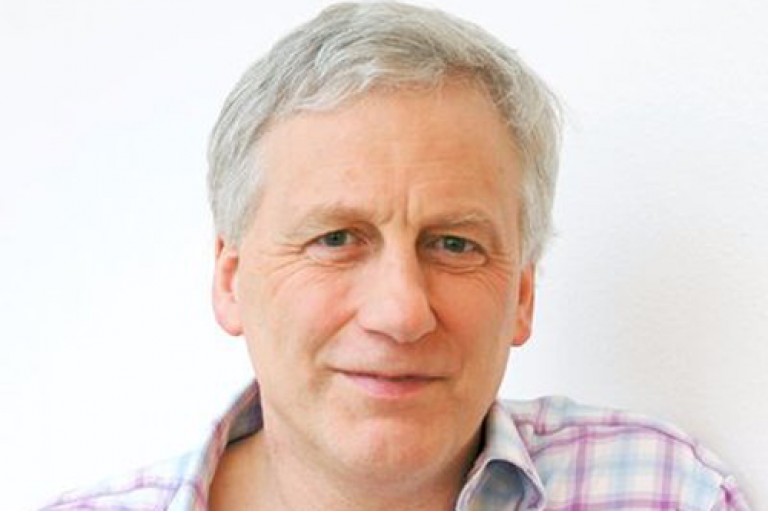Leading journalists James Ball, Esme Wren, Rosie Wright and Kamal Ahmed answer student questions about their field.
By Eve Lacroix (Senior Communications Officer), Published
Is AI a threat to democracy? City, University of London students grilled leading journalists on today’s media landscape, the future of journalism and the threats of AI to democracy at the second annual City Question Time.
Based on the longstanding BBC ‘Question Time’ TV series, the event was attended by 80 audience members made up of journalism students and City staff members who submitted questions the panel of alumni.
Hosted on campus on Tuesday 4 March, the event was moderated by James Ball, a City MA Investigative Journalism alumnus who received a Pulitzer Prize following his reporting on Wikileaks.
The panel was organised by Barney Jones, Visiting Professor of Journalism at City, former Editor of The Andrew Marr Show and of BBC Newsnight.
The panel of City journalism alumni was comprised of:
- Esme Wren, Editor for Channel 4 News
- Rosie Wright, Presenter on “Early Morning Breakfast” Times Radio
- Kamal Ahmed, Editor-in-Chief and Co-founder of The News Movement.

Panel insights: AI in the news, the role of Ofcom and how to get into journalism today
Regulation of the news: AI and Ofcom
Discussing news regulations, Esme Wren (Channel 4) said:
Kamal Ahmed (The News Movement) added:
How student journalists can get their foot in the door
Responding to a question around how journalism students can get their foot in the door, the panel responded with advice.
Esme Wren (Channel 4) said:
Rosie Wright's (Times Radio) advice was:

Kamal Ahmed (The News Movement) said:
James Ball (freelancer) added:
What skills are needed in journalism today?
Each speaker agreed the industry was shifting, with news organisations pushing out content across multiple platforms.
Kamal Ahmed (The News Movement) said:
Rosie Wright (Times Radio) added:
City Question Time
Journalism students Hayley Jones, Fergal Jeffreys, Harry Torrance, Alastair Lyon, Ruth Lucas and Aoife Petrie helped put together the event – gathering audience questions, covering the event for the Journalism Students’ newspaper XCity, and filming.

At City, Professor Barney Jones delivers the highly popular “Political Headlines” module, which sees students meeting top Lobby journalists and politicians across the political spectrum at Westminster.



